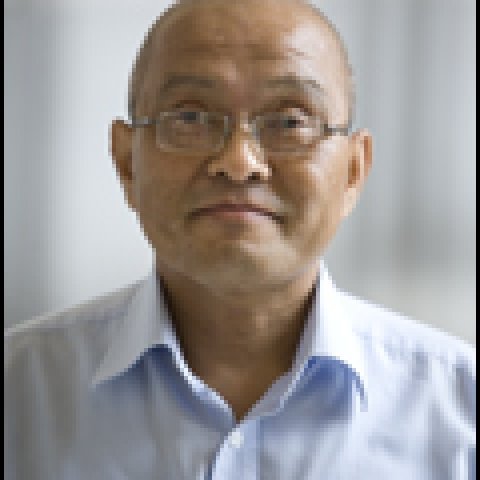Bhumitra Chakma
Former Fellow
Professional Affiliation
Lecturer in War and Security Studies and Director of South Asia Project, Department of Politics and International Studies, The University of Hull, UK
Expert Bio
My research has primarily focused on strategic and nuclear weapons politics in South Asia, although my intellectual life did not begin in this area. During my postgraduate studies and at the beginning of my academic career I delved into ethnicity and nationalism studies. I was particularly interested in ethnic identity formation and its dynamics within the ‘nation-state'. At the International University of Japan, I wrote an M.A. thesis which explored and analyzed the relationship between ethnic groups and the state, specifically looking at two near-ideal nation-states in the contemporary international system – Bangladesh and Japan. I argued that in the real world the ‘nation-state' is a problematic idea as all states are essentially multi-national including the two countries that I examined.While I did not discard my interest in ethnicity and nationalism, I changed my research focus at a later stage as I began to wonder what had prompted India and Pakistan to seek nuclear weapons at a time when global anti-nuclearism was strong. And more puzzling was that Indians and Pakistanis were seeking those weapons despite the existence of endemic poverty and grotesque inequality in their countries. My Ph.D. dissertation sought to explain this and concluded that nuclear weapons proliferation in India and Pakistan occurred as a result of a chain reaction of the global nuclear security dilemma. In other words, insecurity was a key driver of nuclear proliferation in South Asia although other factors also contributed to it.India and Pakistan shrugged off deliberate nuclear ambiguity and emerged as de facto nuclear weapons states by openly testing nuclear weapons in May 1998. New nuclear identity meant that many of their pre-tests nuclear policy orientations would cease to apply from that point onward and each country would need to contemplate new nuclear postures. This led me to undertake research on Pakistan, which eventually resulted in my recently published book – Pakistan's Nuclear Weapons.The introduction of nuclear weapons in South Asia has fundamentally altered the security architecture of the region. Have nuclear weapons made the region more or less secure? I have tried to address this question in my forthcoming book – South Asia's Nuclear Security. My Wilson Center project has emerged from my quest to understand the politics of nuclear weapons in South Asia and beyond.
Education
B.S.S. (Hons.) Dhaka University; M.S.S. Dhaka University; M.A. International University of Japan; Ph.D. University of Queensland
Experience
Lecturer-Associate Professor, Department of International Relations, Dhaka University, 1989-2003 Lecturer, School of History and Politics, University of Adelaide, 2004-2006
Expertise
South Asia's nuclear weapons politics and security; ethnicity and nationalism
Wilson Center Project
"South Asia's Three-Dimensional Nuclear Deterrence: Examining the US Factor"
Project Summary
The United States has traditionally played an important role in the strategic politics of the Indian subcontinent, particularly in the resolution of various Indo-Pakistani crises. This role has become even more significant since the advent of nuclear weapons in South Asia. The United States, for example, was an important factor in the strategic calculations of both Islamabad and New Delhi during the Kargil conflict in 1999 and eventually played a pivotal role in the diffusion of the crisis, which, many believe, could escalate into a wider conflict. Such a role of the U.S. was also apparent in the diffusion of the 2001-02 Indo-Pakistani military standoff.
The U.S. role in South Asian crises raises some interesting questions: is the Indo-Pakistani nuclear deterrence essentially a three-dimensional strategic engagement? What if the US does not engage in a future Indo-Pakistani crisis? Will the Indo-Pakistani nuclear deterrence fail in such a scenario? These issues also raise another general question: how do we conceptualize or define nuclear deterrence in the post-Cold War era? My research project aims to analyze, firstly, the U.S. factor in the Indo-Pakistani nuclear deterrence and, secondly, the implications of South Asia's strategic lessons for (re)conceptualizing nuclear deterrence in the 21st century.
Major Publications
- Pakistan's Nuclear Weapons (London: Routledge, 2009);
- Strategic Dynamics and Nuclear Weapons Proliferation in South Asia (Bern: Peter Lang, 2004);
- "Toward Pokhran II: Explaining India's Nuclearisation Process", Modern Asian Studies, vol. 39, no. 1 (February 2005), pp. 189-236.

